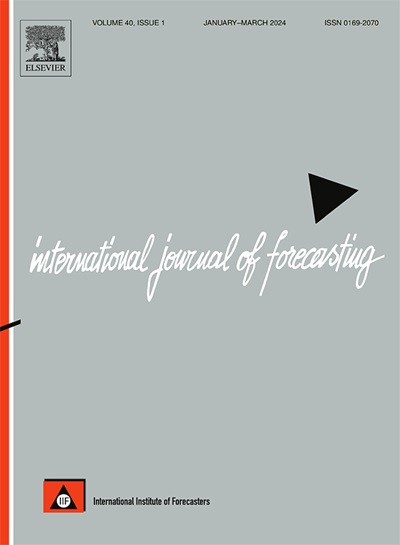用贝叶斯var预测宏观经济数据:稀疏还是密集?视情况而定!
IF 7.1
2区 经济学
Q1 ECONOMICS
引用次数: 0
摘要
向量自回归(var)在宏观经济变量建模和预测方面有着广泛的应用。然而,在高维情况下,它们容易出现过拟合。贝叶斯方法——更具体地说,收缩先验——已被证明在提高预测性能方面是成功的。在本文中,我们引入了半全局框架,在该框架中,我们用特定于群体的收缩参数取代了传统的全局收缩参数。我们展示了该框架如何应用于各种收缩先验,例如全局-局部先验和随机搜索变量选择先验。我们在广泛的模拟研究和美国经济预测数据的实证应用中证明了所提出框架的优点。此外,我们进一步阐明了正在进行的“稀疏性错觉”辩论,发现稀疏/密集先验下的预测性能在评估的经济变量和时间框架中有所不同。然而,动态模型平均可以将两者的优点结合起来。本文章由计算机程序翻译,如有差异,请以英文原文为准。
Forecasting macroeconomic data with Bayesian VARs: Sparse or dense? It depends!
Vector autoregressions (VARs) are widely applied when it comes to modeling and forecasting macroeconomic variables. In high dimensions, however, they are prone to overfitting. Bayesian methods—more concretely, shrinkage priors—have been shown to be successful at improving prediction performance. In the present paper, we introduce the semi-global framework, in which we replace the traditional global shrinkage parameter with group-specific shrinkage parameters. We show how this framework can be applied to various shrinkage priors, such as global–local priors and stochastic search variable selection priors. We demonstrate the virtues of the proposed framework in an extensive simulation study and in an empirical application forecasting data on the US economy. Further, we shed more light on the ongoing ‘illusion of sparsity’ debate, finding that forecasting performances under sparse/dense priors vary across evaluated economic variables and across time frames. Dynamic model averaging, however, can combine the merits of both worlds.
求助全文
通过发布文献求助,成功后即可免费获取论文全文。
去求助
来源期刊

International Journal of Forecasting
Multiple-
CiteScore
17.10
自引率
11.40%
发文量
189
审稿时长
77 days
期刊介绍:
The International Journal of Forecasting is a leading journal in its field that publishes high quality refereed papers. It aims to bridge the gap between theory and practice, making forecasting useful and relevant for decision and policy makers. The journal places strong emphasis on empirical studies, evaluation activities, implementation research, and improving the practice of forecasting. It welcomes various points of view and encourages debate to find solutions to field-related problems. The journal is the official publication of the International Institute of Forecasters (IIF) and is indexed in Sociological Abstracts, Journal of Economic Literature, Statistical Theory and Method Abstracts, INSPEC, Current Contents, UMI Data Courier, RePEc, Academic Journal Guide, CIS, IAOR, and Social Sciences Citation Index.
 求助内容:
求助内容: 应助结果提醒方式:
应助结果提醒方式:


